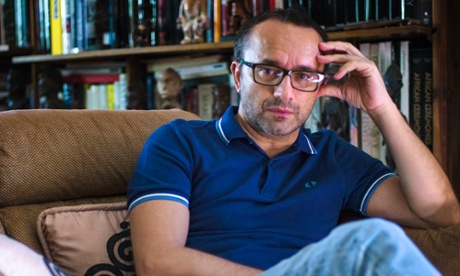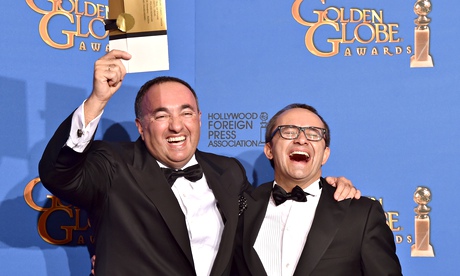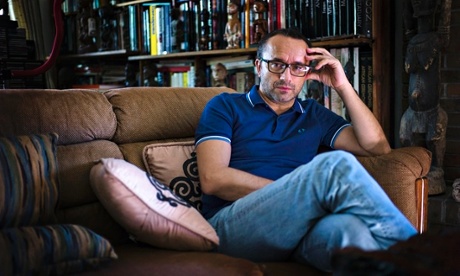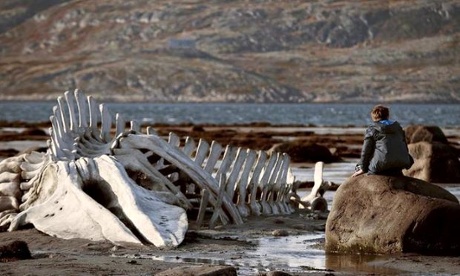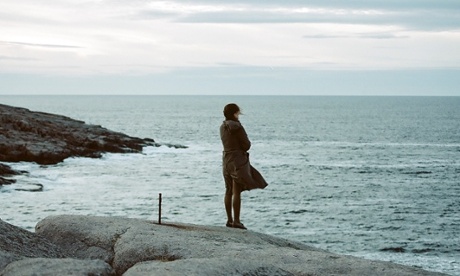Andrey Zvyagintsev makes heavyweight political dramas that move smoothly, hit hard and leave colourful bruises. His subject is a broken system, a lawless land, and so he fills his stories with scheming politicians and downtrodden victims. The bus shelters are festooned with missing person posters, a dead dog hangs in the boughs of a blighted city tree and the court officials pass judgment in such a rapid-fire monotone that the words lose all meaning. His films tell us that hell exists – and that its name is modern Russia.
In his homeland, predictably, the authorities have taken great umbrage at this. Having ardently championed Zvyagintsev in the past, they appear to have suffered a case of buyer’s remorse, recoiling from his 2014 film Leviathan an instant after they had anointed it as the nation’s Academy Awards nominee. His latest work, Loveless, was made without state support, assembled with European cash to paint a black-as-pitch portrait of the Moscow middle class. “I’m outside the system. My producer finds the money,” Zvyagintsev explains. “And that makes me a very happy film-maker.”
We meet on the day Loveless premieres at Cannes, in a house set back from the road, shielded from the crowds by a wrought-iron gate and a tumbledown prefab that doubles as a boutique. It’s gloomy in the house but Zvyagintsev – a sombre middle-aged man with close-cropped, salt-and-pepper hair – elects to keep his sunglasses on throughout the interview. He views the world darkly; that much is clear from his films.
Loveless is black but it’s brilliant, too. A police procedural of sorts, the film widens its net until it catches a whole nation, from the rich, painted divas snapping selfies in the restaurants to the vast derelict sports centre on the outskirts of town. Alexey Rozin and Mariana Spivak play Boris and Zhenya, a warring Muscovite couple on the brink of divorce, so busy with their respective new lovers that it takes them two days to realise their son has gone missing. The parents are exasperated and duly set out to retrieve him. Privately, though, they may be half-relieved that he’s gone. “I’ve never loved anyone,” Boris explains at one point. “Only my mum when I was little – and she’s such an idiot.”
After spending two hours in the company of toxic Boris and Zhenya, I emerged from the cinema in dire need of a shower. Heaven knows how Zvyagintsev kept going through weeks and months of the production schedule. He must have felt the film’s chill seeping into his bones.
The director chuckles. He’s having none of it. “First of all, I love these characters, despite their flaws. I was really pleased to find good actors to embody them. And I was excited to see the script turn out how I wanted. So this whole film, for me, was nothing but joy.”
As a boy in Siberia, he idolised Al Pacino and dreamed of becoming an actor. Arriving in Moscow, he supported himself with a succession of odd jobs. He cleaned houses, blew leaves and shovelled snow in a goods yard. The last job was the worst, he says. “Winters in Russia are very severe, very long. There was a lot of snow that I had to shovel from one place to another. And that was OK, the snow wasn’t bad. The problem was the ice. I had to hit it for hours with a blade, just to break it up. So I don’t miss the ice. The ice almost killed me.”
Later he would secure roles in TV soaps and furniture commercials. These days he doesn’t miss the acting much, either; says he hasn’t been in front of a camera since he shot his first film. “My time in acting is long since forgotten. There are people who can do it so much better than me.”
His 2003 debut, The Return – an epic rites-of-passage saga – won the Golden Lion at Venice; 2007’s The Banishment competed for the Palme d’Or at Cannes. Then, with 2011’s Elena, Zvyagintsev began focusing on the specifics of Russian society, juxtaposing the residents of a plush Moscow apartment complex with those of a dilapidated estate on the city’s industrial fringe. It was around this time that the political establishment began cooling on him. But why the estrangement? Had he changed or had it?
“Hmm,” he says. “Tough question. I think the first films didn’t really touch on modern-day realities, so it was easier for the Ministry of Culture to like and support them. With Elena I started shooting in modern-day Moscow, in the modern political landscape. So the problem is the mirror. The people in power look into the mirror and do not like what they see. But it is just my point of view, my perception of reality. I could be wrong.”
The divorce became absolute with Leviathan. Ostensibly the tale of a small-town mechanic crushed by the bureaucratic machine, the film climaxed with the triumph of a peculiarly Russian strain of evil, complete with fascist rhetoric inside the Orthodox church and a portrait of Putin inside the corrupt mayor’s office. Having initially rubber-stamped Leviathan as Russia’s official Oscar contender, the authorities abruptly decided they loathed it. The far-right politician Vladimir Zhironovsky denounced the film as “filth” while a prominent church group accused it of “odious slander”. In the wake of its release, Vladimir Medinsky, the minister of culture, drew up a new set of guidelines, expressly targeting films that “defile” Russia. In one fell swoop, Zvyagintsev was shoved outside in the cold.
I ask if he considers himself a dissident now and the question makes him wince. The label is too loaded; he has to tread carefully. “Yes, Mr Medinsky was disappointed by Leviathan. He felt it showed Russia in a bad way. But I was being sincere. If I show the mayor to be corrupt, that’s because these people exist. That’s not because I want to be a dissident, or even because I want to criticise Russia. I’m just telling the stories I see around me. So if I’m a dissident, it’s not on purpose.”
He hopes he can continue making films in the homeland. He balks at the prospect of having to adapt to a new language and culture. Zvyagintsev feels he should be allowed to remain where he is. Some might even argue he is providing a vital public service.
“The state doesn’t want to remember that it’s the role of the artist to be in the opposition,” he says. “Otherwise how do the people in power see their true face. In ancient times, kings would have clowns and jesters in court every day. On the one hand, they were there to entertain the king. But on the other they were the only people who were able to tell him the truth. The intelligent, wise king knows that the jesters are needed. The foolish, insecure king does not.” Zvyagintsev gives a rueful smile. “You ask me if I’m a dissident. When really, I think, I’m more like a clown.”
• Loveless goes on general released on 9 February.


